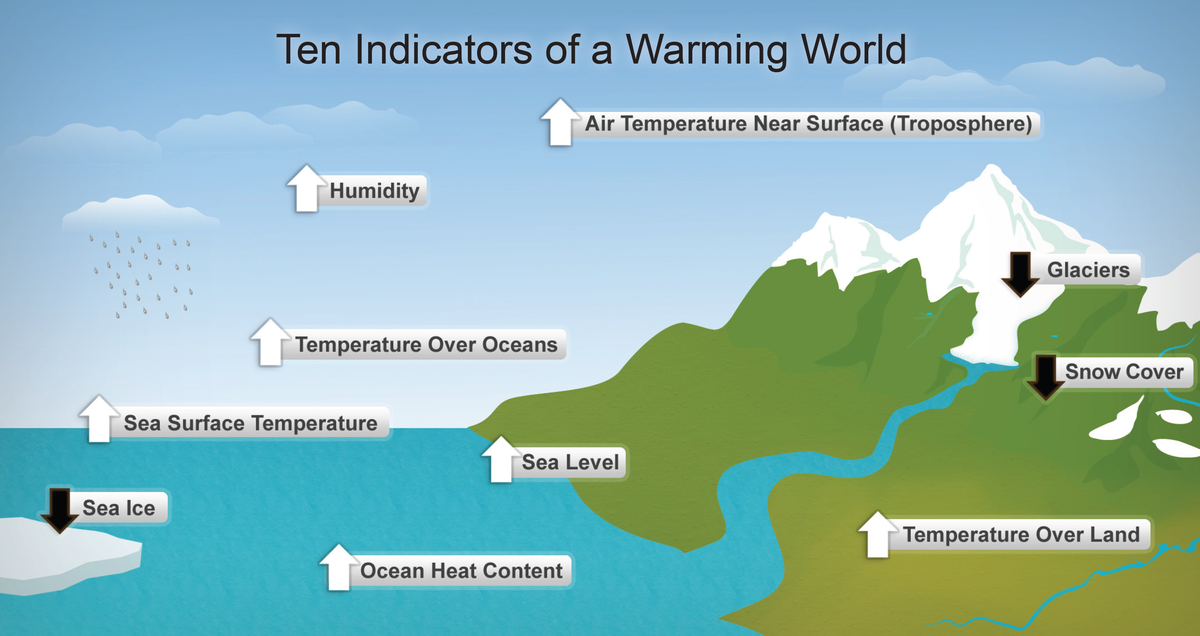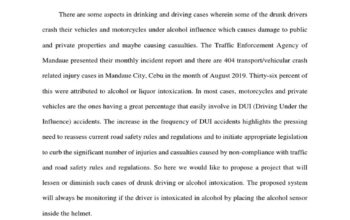The intersection of physics education and climate change is a topic ripe for exploration amidst the global discourse on sustainability and environmental responsibility. An increasingly warming planet, driven by anthropogenic influences, necessitates a diligent examination of how physics—often perceived merely as an abstract science—can fundamentally alter our understanding and engagement with environmental issues. This academic inquiry posits that a robust foundation in physics offers essential insights that are pivotal for comprehending and addressing the complexities of climate change.
One of the primary reasons for the escalating concern regarding global warming is the observable expansion of climate-related phenomena. Rising sea levels, higher incidence of extreme weather events, and shifts in biogeographical distributions communicate a pressing need for interdisciplinary knowledge. Physics, with its extensive frameworks for understanding energy, matter, and their interactions, provides the theoretical underpinnings vital for explaining these phenomena. The physics curriculum, therefore, must evolve to integrate climate literacy, emphasizing how foundational concepts such as thermodynamics, fluid dynamics, and electromagnetism directly correlate to environmental changes.
In addressing the contemporary challenges posed by climate change, physics education can no longer remain an isolated academic discipline. It demands collaboration with fields such as geography, biology, and environmental science. For instance, an understanding of thermodynamics is crucial when examining the energy transformations that underpin climate systems. Students must not only grasp the principles of heat transfer but also the implications of these principles on atmospheric temperatures and weather patterns. This interdisciplinary approach necessitates a reimagining of curricula that fosters synergy between traditional physics teaching and environmental studies.
The persistence of cognitive biases—such as the Dunning-Kruger effect—further complicates the dialogue surrounding climate change. Despite overwhelming scientific consensus regarding the anthropogenic causes of global warming, public skepticism persists. Recognizing this, physics education should focus not only on imparting knowledge but also on cultivating critical thinking skills. By encouraging a deeper understanding of scientific methodologies, educators can empower students to discern between credible scientific discourse and misinformation. This critical lens is essential in revolutionizing the collective understanding of climate phenomena and counteracting the deleterious effects of climate denialism.
In addition to fostering scientific literacy, physics education has the potential to inspire innovative problem-solving approaches. The principles of quantum mechanics, for example, can serve as a metaphor for exploring non-linear systems and complex adaptive behaviors, which are pertinent within climate dynamics. Outcomes from these explorations can lead to novel technological advancements aimed at mitigating climate change impacts. By weaving such topics into the curriculum, educators can ignite a passion for experimentation and innovation among students, encouraging them to contribute to a sustainable future.
The growing urgency of climate-related issues underscores the necessity for physics graduates who possess both the theoretical knowledge and practical skills required to engage meaningfully with the climate crisis. Physics programs should therefore emphasize experiential learning through laboratory work, field studies, and interdisciplinary projects that confront real-world environmental challenges. This hands-on approach equips students with the competencies required for science communication, advocacy, and technological implementation within the context of climate action.
Furthermore, the role of physics educators extends beyond mere content delivery; they are responsible for modeling behavior that reflects an ethos of sustainability and responsibility. Educators should exemplify environmentally conscious practices, thereby instilling such values within their students. This holistic approach to education can forge a generation of physicists who are not only adept at theoretical modeling but are also deeply committed to societal and environmental stewardship.
A growing body of research indicates that engaging students in community-centric projects has a profound impact on their understanding of physics-related concepts. Projects that examine local impacts of climate change—be it through the study of local hydrological cycles or biodiversity shifts—can bridge the gap between theoretical physics and practical application. Such projects not only enhance comprehension but also cultivate a sense of responsibility and connectedness to the community and the environment.
The integration of technology and online learning platforms further expands accessibility to physics education, enabling diverse populations to partake in critical discourse around climate change. Virtual simulations of climate models and interactive apps that illustrate the impact of various energy consumption practices can serve as powerful tools for enhancing understanding. By harnessing these technological advancements, educators can reach a broader audience, inclusive of underrepresented groups in the field of physics. Empowering these populations with knowledge is crucial for engendering innovation that reflects varied perspectives in addressing climate issues.
In conclusion, the imperative for a degree in physics today transcends conventional academic aspirations; it is intrinsically linked to global environmental stewardship. Amidst the increasingly visible ramifications of climate change, physics education must evolve to foster a profound understanding of physical principles as they pertain to ecological dynamics. This evolution of the curriculum, coupled with an emphasis on interdisciplinary collaboration, critical thinking, experiential learning, and community engagement, will ensure that future physicists are equipped not only with knowledge but also with the ethical framework necessary to drive positive change. As the planet grapples with the escalating consequences of climate change, the role of physics education as a catalyst for systemic transformation becomes unequivocally vital.












